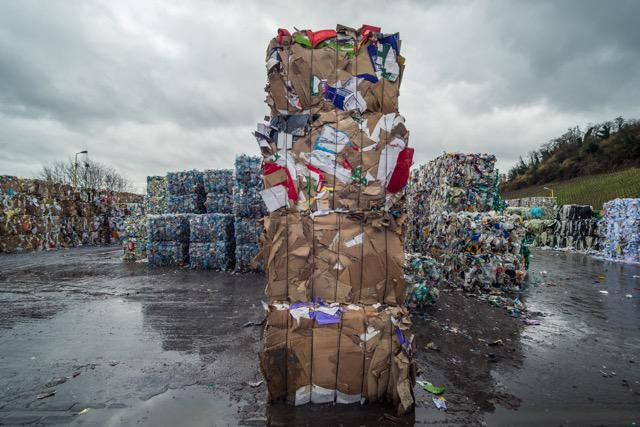In a joint reponse the petitioners, Hugo Fernandes, Tania Alamilla, Philippe Herkrath, Oriana Paul and Raquel Luna, tell Luxembourg why plastic packaging belongs to the past.
Jess Bauldry: What prompted you to set up this petition?
Petitioners: The petition began from a post in a Facebook group of expatriates in Luxembourg. Someone questioned how disturbed she was to find single or few vegetables (or fruits) covered in plastic packaging at her favorite supermarket in Luxembourg. The packaging seemed senseless and counterintuitive. The person expressed the need to address this question to the management of the supermarket. The post rapidly gained more than 200 likes and comments. One of the first comments proposed to write a petition to the supermarket. The proposal rapidly gained wide support, so we wrote the petition. We did not imagine we would reach 8,000 supporters. We are positively surprised, and we intend to push this concern forward.
We are not requesting something new or innovative. This concern is spreading across the world as we start to understand the extent of the damage of plastics upon the environment and our health. We want Luxembourg to make it happen and achieve its commitments to the SDGs and the Paris Agreement.
JB: What is your strategy and aim?
Petitioners: As regular residents and citizens, we do not have the answers regarding how to reduce plastic packaging or where to start. Our strategy is to have a constructive dialogue with the main actors that can realize the reduction of plastic packaging in Luxembourg. They are: civil society, private companies (in this case, supermarkets), environmental NGOs and the government.
As civil society, we are a main actor that has a clear and straightforward demand: we demand the reduction of plastic packaging as much as possible and we are looking for a constructive dialogue with all other parties to achieve that.
The supermarkets are the ones who face the challenge of adapting their packaging policies, so it is critical for us to understand their perspective. We are asking supermarkets what prevents them from reducing plastic packaging.
Besides the supermarkets, we believe NGOs play a critical role to understand the current situation and they can provide solutions through their expertise in the area. For this reason, we contacted several NGOs, who work with environmental issues in Luxembourg, to demand their support and advice. We are in the process of talking with them.
Our final aim is that supermarkets commit to the implementation of a (more) sustainable packaging policy that reduces gradually and as much as possible, the use of plastic packaging. We believe a sustainable packaging policy must be ultimately legislated by the government (not without the proper dialogue of the actors before mentioned).
JB: What do you think of the plastic recycling initiatives already in operation in Luxembourg? Why don’t they go far enough to protect the environment?
Petitioners: We are aware of the great effort of many communes to provide the recycling of certain types of plastics through the Valorlux. We applaud this effort and we are aware it must be done and improved, for the percentage of plastic recycled is low and the plastic waste per capita of the country is the second highest in Europe. We must continue recycling.
Nevertheless, we realise recycling plastics is not enough. We need to eliminate the use of plastics as much as possible. And we need to do it now. This is our aim. We believe Luxembourg can make it happen.
We have seen the positive results of the initiative implemented by the government to incentivise the use of the Ökotüte [reusable shopping bag] and the reduction of single-use plastic bags. We look forward to the implementation of policies such as the banning of plastic packaging wherever possible and as much as possible, advocated by the minister of the environment, Carole Dieschbourg.
There are initiatives in Luxembourg that go beyond recycling. We are following the Transition Days and the Zero Waste Challenge, initiatives that go beyond recycling and involve many local associations. They promote a lifestyle that pursues to diminish our waste footprint. We are also looking for alternatives to reduce our consumption of plastic packaging such as Ouni, which is unique in Luxembourg, as this cooperative provides vegetables, fruits and other household products without packaging. Their aim is to completely get rid of single-use packaging of any type, and of course, plastic packaging.
We follow the initiative Klima-Bündnis, the work of ASTM and the Mouvement Ecologique to protect the environment here and abroad. We follow the campaign of SOS Faim for a responsible diet/nutrition. We also follow the worldwide campaign by Greenpeace International to demand the reduction of plastics.
JB: What advice do you have for readers wishing to protect the environment and do more than signing the petition?
Petitioners: We invite people to sign and share the petition to grow the support for this cause and to receive updates regarding our next steps and information about how to get more involved.
We invite people to join our Facebook group where we share news and tips to reduce the consumption of plastics. It is important to engage with initiatives such as Zero Waste Challenge or Transition Days to build the capacity for society to reduce as much as possible our plastic consumption. We invite you to check out the environmental initiatives mentioned before taking force in Luxembourg. It is possible and fun to move towards a more healthy and sustainable way of life.
Plastic packaging belongs to the past and Luxembourg can set a worldwide example for sustainability and environmental protection today. There is no time to wait. Luxembourg can make it happen.
